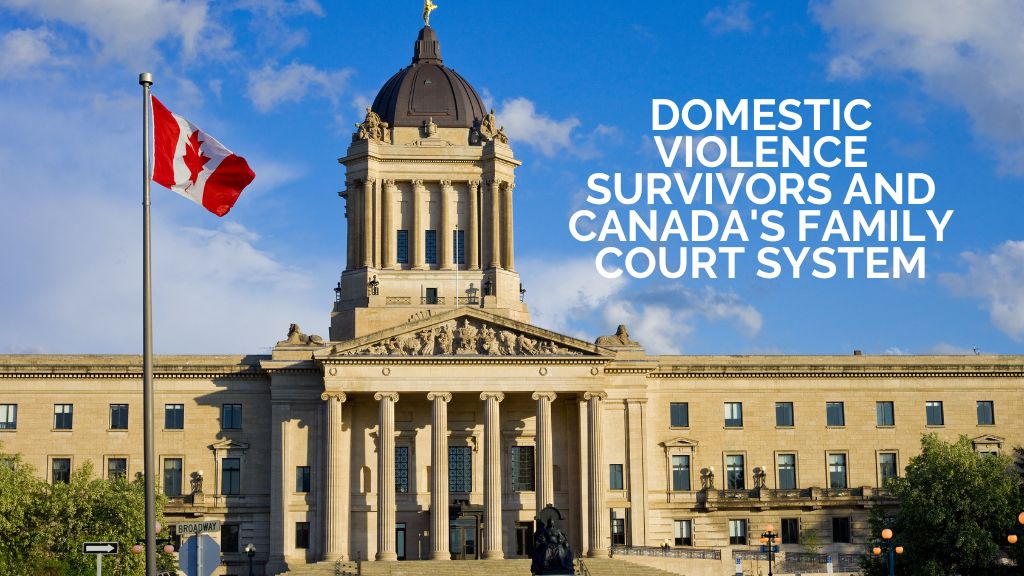
Though media condemns domestic violence and violence against women on a superficial level, Canada’s legal system still lacks support for survivors.
Domestic abuse survivors who are able to overcome the socio-cultural, political, and economic barriers to reporting their abusers must still be able to give their time, energy, and even safety, if they are to bring legal action against their abuser. This process is further exacerbated by the biases and regulations in place that can lead to re-traumatization, and unsafe conditions for women.
This month on the blog, we take a deep dive into the obstacles survivors of domestic violence face navigating Canada’s Family Court System.
ACCESSIBILITY
The first main issue survivors face when pursuing legal action against their abuser, or negotiating divorce and custody, is access to the legal knowledge and labour necessary to fully free themselves from abuse and achieve justice. While lack of legal aid is an issue for survivors across Canada, it has a particularly harmful effect in BC, where funds for legal aid in family law have been cut about 60% from 2002-2005. This has impacted survivors in a few ways.
First, it means that women, especially those who are disadvantaged to begin with, are less likely to be aware of their legal rights. As a result of this, they may be less likely to come forward. This also presents a second barrier to reporting abuse, because women know they will have less support, and may not have the time or economic means to fight a legal battle on their own. Finally, this affects women during their legal proceedings, and how likely they are to have a fair trial or court hearing.
Monique Robert, a writer for the CBC, and a survivor of domestic abuse in BC, explains that her experience with the legal system in BC was like having a job, a process she had to put her life on hold to deal with. Robert’s court proceedings and legal journey, which lasted about a year, also put her safety at risk. While she was trying to bring her abuser to justice, he continued to live in close proximity to her, and nothing was done during this period after she reported the abuse. In fact, Robert was required to attend face-to-face negotiations with her abuser.
RE-TRAUMATIZATION AND PARENTIAL ALIENATION
Another issue with court proceedings involving domestic violence are the policies that subject survivors to re-traumatization. Monique Robert’s case is not unique, being required to interact with your abuser is not uncommon in BC family court. This is when a survivor of abuse has to relive their experience through retelling the events to various parties, and being forced to interact and negotiate with their abuser. Re-traumatization not only deters women from coming forward, but can cause them to settle for a worse legal outcome, rather than subject themselves to recounting and reliving abuse.
In addition to re-traumatization, are the pervasive myths and false assumptions about domestic violence survivors that exist in family court. One of the most harmful ideas in family court is that women exaggerate or lie about abuse to alienate children from their father. Zaccour (2020) explains that a theory often used in custody battles involving alleged abuse is ‘parental alienation’. This is the idea that one parent has convinced or “brainwashed” their child(ren) that the other parent is harmful or does not care about them. This has serious implications for domestic violence survivors. This is because the widespread idea that women tend to be emotional and vindictive, has led to parental alienation being used to justify or dismiss abuse allegations, specifically from women. This means women are told by their lawyers not to bring up the domestic violence they experience, because they could be accused of parental alienation, and end up being less likely to get custody (Zaccour, 2020).

INDIGENOUS WOMEN AND THE FAMILY COURT SYSTEM
As with all issues we discuss on the blog, and aim to address at Dixon, the domestic violence survivor experience with family court is intersectional. Indigenous women have more of a unique and harmful relationship with Canadian family court and social services than non-Indigenous women. Furthermore, Indigenous women are even more likely to be subject to obstacles discussed above due to the following reasons.
First, while funding for general legal aid in family law has decreased for women in BC, public services in general are funded less on Indigenous reserves than anywhere else in Canada. One major consequence of this is the disproportionate number of Indigenous children who are in foster care or in other social services. Indigenous children account for 52% of children in foster-care.
This statistic is the result of a lack of social services and support. This lack means Indigenous parents are not given the same opportunity to raise and support their children. The impacts of this fall mainly on Indigenous mothers, who have less ability to gain custody of their children, and bring their abusers to justice. Indigenous women can be designated as “high-risk parents” simply for accessing social services like a women’s shelter, and risk having their children taken from them, without even getting the chance to go to family court.
THE FUTURE OF ADDRESSING DOMESTIC VIOLENCE IN BC FAMILY COURTS
While there are many issues with how family courts address domestic violence, there has been progress and calls to action regarding improving family courts for survivors. In Victoria, there is a proposed dispute resolution service, which would provide early needs assessments of parties involved and the dynamics of the relationship. Essentially, this means that if a survivor does not want to interact with their abuser, a professional can establish if abuse has taken place, rather than the survivor having to convince a judge and engage in mediations with her abuser.
Additionally, more family lawyers and social work professionals have come forward to denounce harmful policies of family court like re-traumatization and issues of parental alienation. At Dixon, we aim to continue to provide women with both a safe place to rebuild their lives, and the support they need to seek justice for themselves and their families.
If you or someone you know is in need of our services, please call our 24-hour intake line at 604-298-3454. For resources outside of the Lower Mainland, please call VictimLink BC at 1-800-563-0808. If you are in immediate danger, please call 911.

